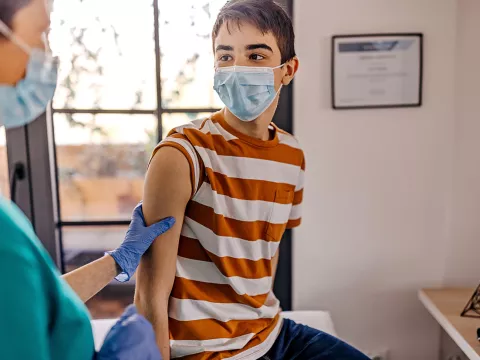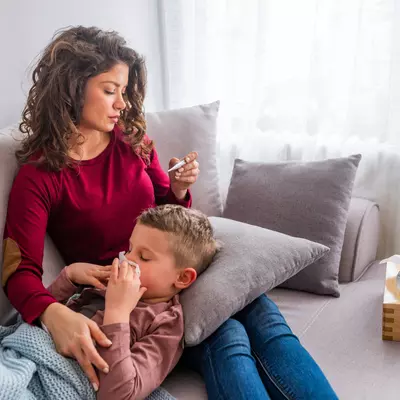- AdventHealth

Choose the health content that’s right for you, and get it delivered right in your inbox.
Getting a COVID-19 vaccine is a brand-new experience for all of us. And if the unexpected is making you feel uneasy, we’re here to walk you through it. Here’s how to prepare for this exciting step towards getting back to pre-pandemic activities and routines.
Should You Take Medicine Before Getting Your Shot?
The CDC says you should not take over-the-counter medicines before your shot to prevent side effects. That includes aspirin, acetaminophen, ibuprofen and antihistamines.
But in most cases, you should keep taking your normal medicines for treating health conditions. If you have questions, please speak with your primary care provider beforehand.
What Happens During the Appointment?
After you make your COVID-19 vaccine appointment, check your confirmation email to find out what you need to bring, and arrive prepared. At your appointment, both you and your vaccine provider will wear a mask while you get the vaccine.
After your shot, you will typically be asked to stay on-site for at least 15 minutes. Severe allergic reactions are rare, but this waiting period means help will be nearby if you need it.
You should leave with a vaccination card that notes which COVID-19 vaccine you received, as well as when and where it was given. Put the card somewhere safe, but don’t laminate the card; your provider may need to write on it again later.
If for some reason you aren’t given a card, the CDC recommends asking your vaccination site or state health department how to get one.
Possible Vaccine Side Effects
You might feel a bit under the weather for a few days after getting vaccinated. That’s a sign your body is building up defenses against COVID-19.
Common side effects include:
- Chills
- Fever
- Headache
- Muscle ache
- Nausea
- Pain, redness or swelling in your arm where you got the shot
- Tiredness
To soothe a sore arm, apply a cool, wet washcloth to the area. To feel better with a fever, drink extra fluids and wear lightweight clothing. In addition, the CDC says it’s OK to take over-the-counter medicine to ease discomfort after your shot, but you should not take any beforehand.
What to Know About Getting a Second Shot
The Pfizer and Moderna vaccines require two shots. The second shot is given about three weeks (Pfizer) or four weeks (Moderna) after the first one. Bring your vaccination card to your appointment, as well as anything that was required at your first visit.
Side effects are more common after the second dose. But just like before, they should go away within a few days. And you’ll be left with the satisfaction of knowing you’ve done your part to protect yourself and others in this critical time.
Your Source for Trusted Coronavirus Vaccine Updates
With something as important as the coronavirus vaccine, you need to hear from a medical team who has your whole health in mind. For more coronavirus vaccine information from our medical experts, visit our Coronavirus Vaccine Resource Hub.



